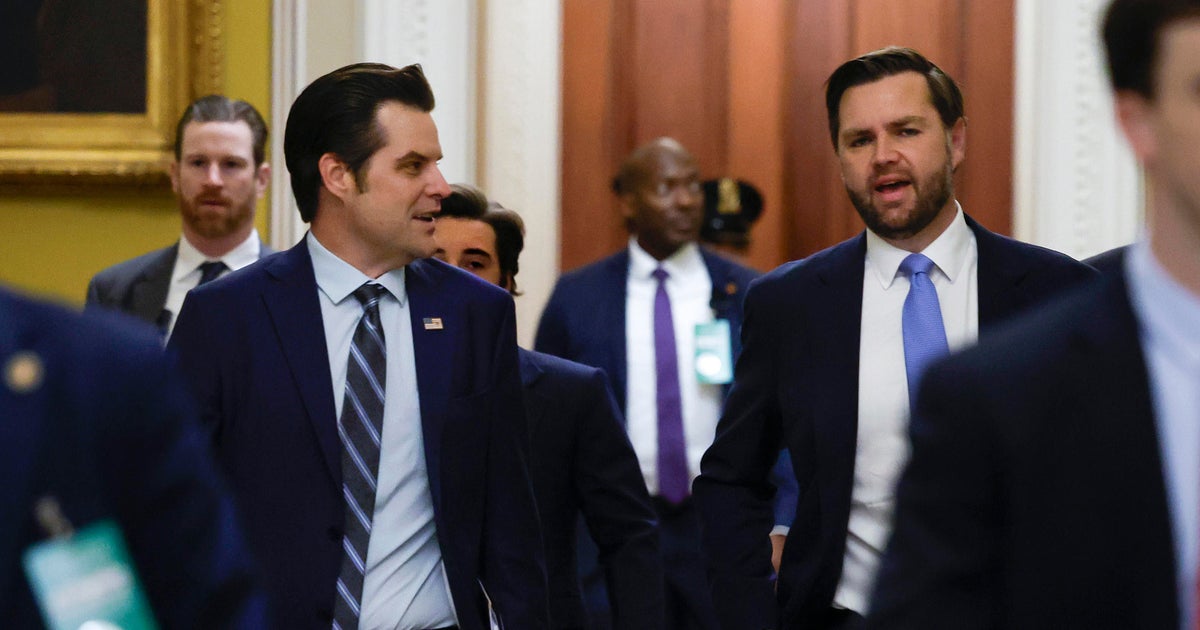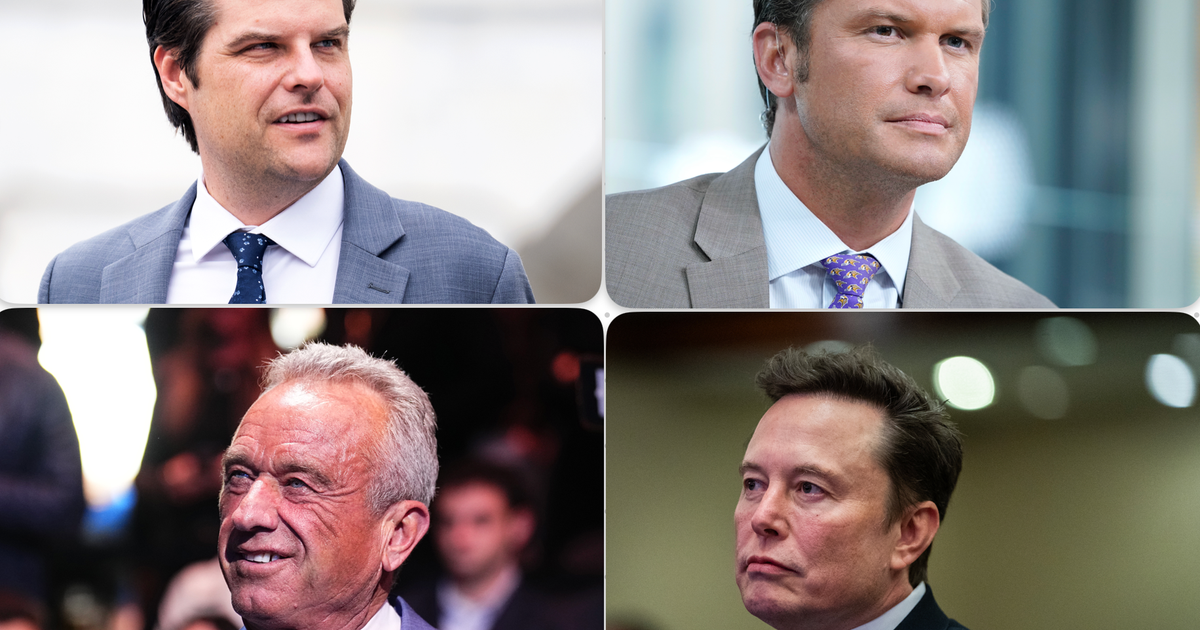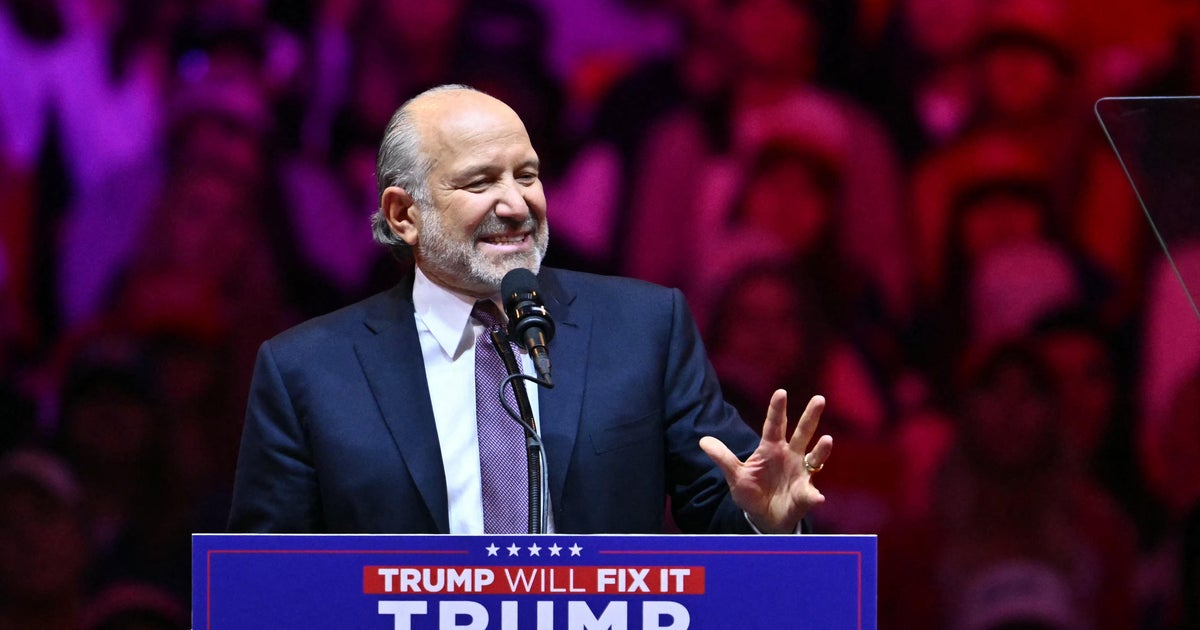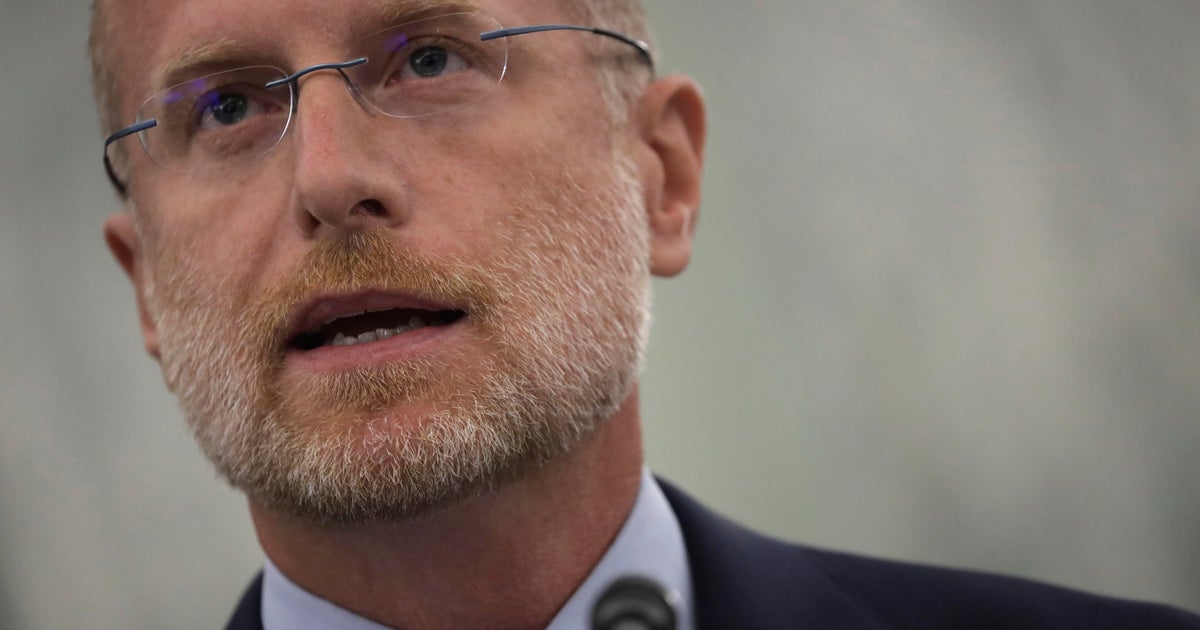Trump picks Sen. JD Vance as VP running mate for 2024 election
Former President Donald Trump has chosen Sen. JD Vance of Ohio to be his vice presidential running mate this November. Trump announced his VP pick on social media just before he was to accept the presidential nomination at the in Milwaukee on Monday.
A source familiar with Vance's selection told CBS News that Vance flew privately to Mar a Lago to meet with Trump Saturday morning. He received the call from Trump asking him to be his running mate 20 minutes before the former president announced his selection on social media.
Trump said in his social media post, "After lengthy deliberation and thought, and considering the tremendous talents of many others, I have decided that the person best suited to assume the position of Vice President of the United States is Senator J.D. Vance of the Great State of Ohio."
He said of Vance that he had "honorably served our Country in the Marine Corps, graduated from Ohio State University in two years, Summa Cum Laude, and is a Yale Law School Graduate, where he was Editor of The Yale Law Journal, and President of the Yale Law Veterans Association."
The former president noted that Vance's book, "Hillbilly Elegy," was a best-seller that "championed the hardworking men and women of our Country." And he pointed to Vance's previous career as a venture capitalist.
A source familiar with Vance's selection told CBS News that Vance flew privately to Mar a Lago to meet with Trump Saturday morning. He received the call from Trump asking him to be his running mate 20 minutes before the the former president announced his selection on social media.
Vance, who is just 39, is half Trump's age, is one of the youngest men to be a vice presidential nominee and is political neophyte, a first-term senator who's only been in office for about a year and a half.
Sources confirmed before Vance's selection was announced that Florida Sen. Marco Rubio and North Dakota Gov. Doug Burgum, who were also considered to be top contenders for the No. 2 job, were informed that they had not been chosen. Upon the announcement that Vance was the pick, Burgum said in a social media post that his "small town roots and service to country make him a powerful voice for the America First Agenda."
Although Vance wasn't at the Pennsylvania rally where a shooter made an attempt on the former president's life, the senator expressed his concern and support for the president from Ohio. He also shared fundraising information for the families of those who were killed or injured at the rally.
"Courageous, United, and Defiant. This is leadership," Vance wrote on X over the weekend after Trump asked Americans to remain "resilient" in their faith and "defiant in the face of wickedness."
The Trump campaign released a campaign video showing clips of Vance appearing on the campaign trail with Trump, and his TV appearances and concluded it with the Trump-Vance campaign logo.
Vance has frequently joined Trump on the campaign trail and was long considered to be on the shortlist of VP contenders. Vance and his wife, Usha, were spotted leaving their Ohio home Monday morning, a sign that Vance might be the pick.
Ohio has been a reliably Republican-dominated state in recent elections, although the senior senator from the state, Sherrod Brown, is a Democrat and is also up for reelection this year. But Trump has focused less on choosing a running mate from a key battleground state and more on the qualities in a candidate that matter most to him.
Trump has prioritized picking a running mate who would be loyal to him and support him publicly, as Vance has increasingly done through the years.
Initially, though, Vance harshly criticized Trump and was an avowed "Never-Trump guy." Earlier this year, Fox News' Bett Baier confronted Vance with some of his previous statements, including comments that Trump could be "America's Hitler" and "cultural heroin." Vance told Baier he was "wrong" about Trump.
"I think you should, when you are wrong about something, you should change your mind and be honest with people about that fact," Vance said in the interview.
Vance grew up in challenging circumstances, largely raised by his grandparents before going on to college and law school at Yale.
Now one of Trump's most vocal allies, Vance defended the former president during his criminal trial in Manhattan, including after his conviction on 34 felony counts of falsifying business records for "hush money" payments.
"The entire purpose of this trial was to allow the media and the Democrats to say exactly that," Vance told CNN after the New York verdict. "This was never about justice, this is about plastering 'convicted felon' all over the airwaves when in reality the only thing that Donald Trump is guilty of is being in the courtroom of a political sham trial."
Asked in a June interview on "Face the Nation" about his interest in the vice presidency and his relatively brief experience in the Senate, Vance said, "In 18 months … we've done a lot of good work for our constituents."
Vance represents a departure from Mike Pence, who was Trump's vice president in his first two presidential nominations. Vance has said in the past that he would have refused to certify the election on Jan. 6, 2020, if he had been in Pence's position.
"If I had been vice president, I would have told the states, like Pennsylvania, Georgia and so many others that we needed to have multiple slates of electors," he told ABC News in early February, "and I think the U.S. Congress should have fought over it from there. That is the legitimate way to deal with an election that a lot of folks, including me, think had a lot of problems in 2020. I think that's what we should have done."
In 2020, Trump pressured Pence, who presided over the joint session of Congress that affirmed the results of the presidential election, to refuse to certify the electoral votes that showed Joe Biden had won. Pence did not agree to do so, concluding that his role was ceremonial, and he ultimately announced that Mr. Biden had won — after an attack on the Capitol that day. Since then, Trump has continued to publicly claim that Pence "did have the right to change the outcome."
The job of the vice president is to read the results of each state according to the the 12th Amendment. The Electoral Count Act of 1877, the other law concerning the certification of votes, does not give vice presidents the power to overturn the vote either. Numerous legal experts have denied that there is any interpretation of these laws that would have given Pence the power to reject the outcome of the election on January 6.
Caitlin Huey-Burns and Jacob Rosen contributed to this report.




